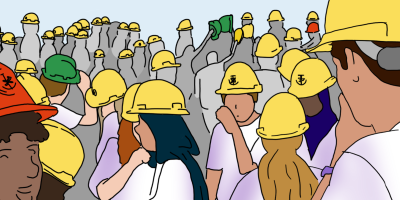Over the course of the past few days, China has been forced to close major highways and airports in Beijing due to the thick soup of toxic air that continues to tower over the city’s skyline. Citizens worrying for their safety have decided to stay indoors where they are accompanied by their expensive, yet necessary, air filters. Those who are unable to afford the company of such lavish instruments are left to wear cheap masks that do very little to filter out the harmful contaminants. As the world patiently waits for the smog to resign, there is one common question troubling Chinese and Western governments alike; can China sustain its current level of growth whilst providing a safe environment for its civilians?
Regarded as the world’s second largest economy, China’s growth over the last three decades has been staggering. A quick internet search will reveal thousands of articles regarding China’s unprecedented economic growth and how it is the beacon of hope for global recovery. However, China’s recent development has come at a steep cost.
China continues to create new factories in order to meet global demand for consumer electronics, clothes, and toys. These coal powered factories are ill-equipped and produce enormous quantities of carbon dioxide. In fact, China has overtaken the US and is currently the largest producer of carbon dioxide emissions. Air pollution in China has reached an all-time high; with pm 2.5 readings of 700+ µg of contaminants per cubic meter, where in comparison a measurement of 300 is deemed hazardous. The World Bank estimates that 760 000 people die every year in China as a result of pollution. In a country where lung cancer and respiratory diseases are widespread, it is easy to see the ramifications of environmental degradation.
However, air pollution is only one of China’s countless environmental problems. Toxic chemicals spewing out of Chinese factories combine with water vapour in the atmosphere to create acid rain. Large amounts of electronic waste are imported in to China from overseas as well. Although disassembly and processing of electronic waste can create valuable jobs for migrant workers, the resulting pollutants can cause severe damage to the environment. Furthermore, China lacks stringent waste management laws regarding electronic and lead waste. This coupled with over population have led to an unprecedented water shortage in China. The World Health Organization reported that over 500 million Chinese citizens lacked access to clean drinking water in 2005.
Although recent initiatives have been made to mitigate some of the aforementioned hazards, China needs to create rigorous rules regarding proper disposal of waste. The government’s confusion as to whether it should continue to grow while endangering the lives of its civilians or sacrifice growth for public safety is understandable. However, in the end China should focus on what really matters, the safety of the Chinese people.
I think we take our ability to go outside and get a whiff of fresh air for granted as we are ignorant of the fact that much like water, fresh air has become an expensive and an almost extinct commodity in today’s society.






Leave a Reply